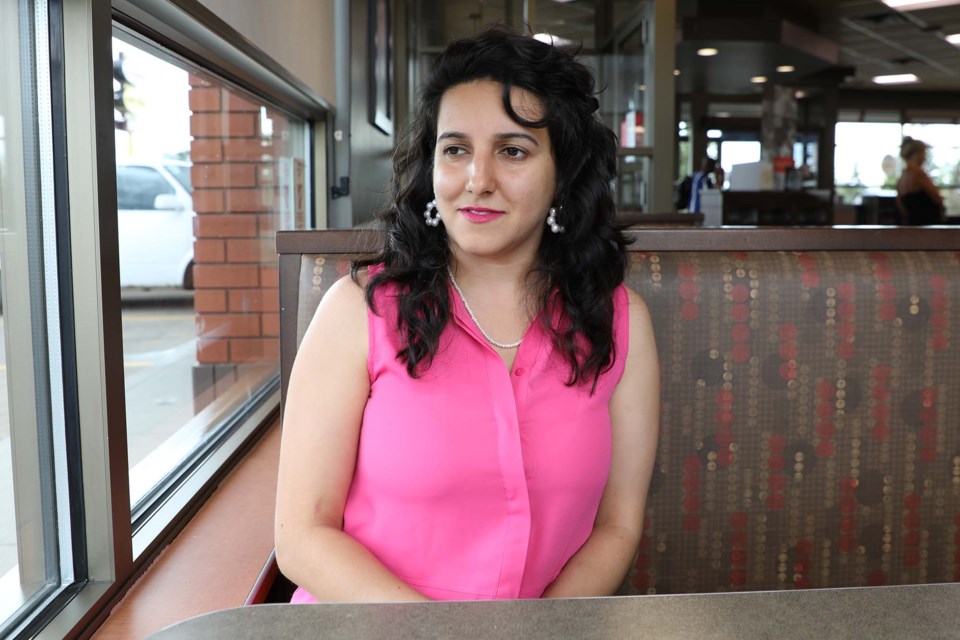Walking into an unfamiliar building and encountering lineups can be stressful; throw in a pandemic, public-health measures, and a snap election, and it can become outright difficult, especially for those who have low vision or sight impairment.
“In the beginning, it gets a little confusing, because when you walk [into a polling station], there's just all these lineups, and you just don't know which direction to hit,” said Gunjan Dhawan, a program aide for innovation and technology at the Canadian Institute for the Blind.
Dhawan is a resident on the cusp of St. Albert and Edmonton who is legally blind. She wants people to know Elections Canada does have a number of options to make voting more accessible.
“I mean, it is difficult, for sure. I will say today, it's, of course, a bit easier than what it was a couple of years ago, there is a bit of support,” said Dhawan.
Mathew McKenna, media relations and issues management with Elections Canada, said they have a number of tools and services available across the country at every polling station.
Before federal election day, voters can receive an information guide in Braille, large print, and audio files.
“It's basically a 101 guide to voting in a federal election and everything from registration to voting in advance polls to going to your assigned polling station on election day. So that's available in those three formats, as well as the list of accepted ID,” he explained.
If people have further questions or concerns or want to access these resources before the election, McKenna recommends contacting the local Elections Canada office.
When it comes to voting day, the primary option for people with low sight on election day is to bring someone to assist in marking the ballot.
“You can bring somebody with you, so a family member, friend, maybe a personal support worker,” he said.
If a person chooses to have someone assist them with their ballot, that person will be required to take an oath as a security check.
“[The oath] basically says, ‘I'm not going to compromise the secrecy of this person's vote,’” explained McKenna.
If a person does not have someone to bring with them, an election worker is available to help if requested.
“In this case, we always have a second election worker present to act as a witness just to make sure that there's no interference between the helper and the person voting,” he said.
A list of candidates is available in Braille and large print at events, polls, and on election day.
Other tools offered at polling stations on request include magnifiers, a signature guide that can be used as a template to help people sign a document, and a Braille voting template.
“It's another sort of plastic template that gets placed over the top of the ballot, and there are little holes beside each of the voting options … let's say there were four people running, there’d be four holes in the template with Braille beside them to indicate which option they were.
“And then it was sort of guide the person to be able to make the choice that they wanted to make,” he said.
As per pandemic health measures, McKenna said polling stations will have the same standards that we have become used to: sanitizing stations, social distancing, masking by poll workers, and floor markers.
Dhawan said she would like to see the ability to vote over the phone one day.
McKenna said this is an issue that would have to be taken up with Parliament, as Elections Canada’s role is to independently administer the Elections Act — which currently would not allow for over-the-phone voting.
“It's Parliament's purview to make a change to the law. And if that was the case, we would deliver on it,” said McKenna.
Ultimately, Dhawan wants people to know there are multiple tools in place they can use independently that will help in the upcoming election.
“I just feel like [the tools] will just encourage more people to be able to come out and vote. Because I know sometimes that can become a concern.”




